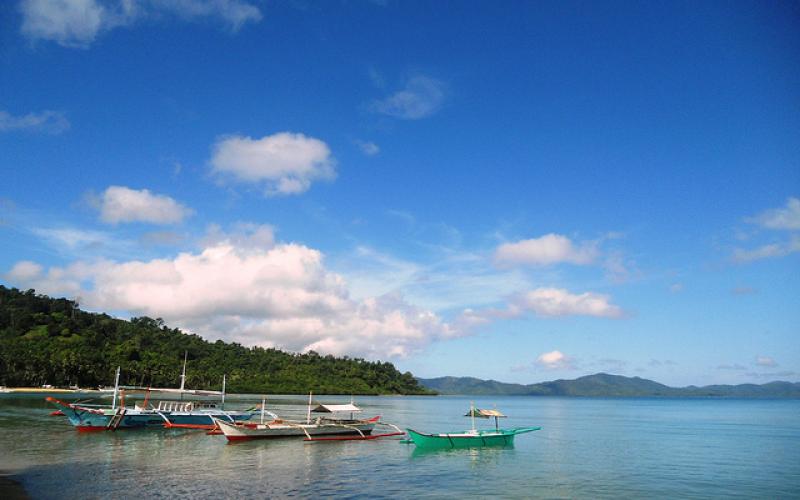
At the end of April, the international community will meet in the Hague for the Global Oceans Action Summit for Food Security and Blue Growth. The summit will bring together representatives from governments, international agencies, NGOs and the private sector. This is the first in a series of blog posts in the run up to the Summit that will address key ocean issues.
Recommended publications
- Fisheries management and governance challenges in a climate change
- Challenges facing marine aquaculture and requirements for development in Egypt
At the end of April, the international community will meet in the Hague for the Global Oceans Action Summit for Food Security and Blue Growth. The summit will bring together representatives from governments, international agencies, NGOs and the private sector. This is the first in a series of blog posts in the run up to the Summit that will address key ocean issues.
The important word in the summit title is: action. We need to identify concrete actions that we will need to take to meet current and future challenges. First, we need to agree on what those challenges are. Here are my top five:
1. Improving fisheries
Our ocean catch is a vital part of the human food basket. Fish are the principle animal source food for more than a billion people and 42% of those fish come directly from the sea. The indirect contribution from fishmeal used to farm fish adds to that total.
With growing demand for fish, sustaining and, where possible, enhancing our wild fish catch is an imperative. This will require continued efforts and investments to help reform poorly managed fisheries and enhance the contribution they make to economic well-being and food security. It will also help addressing many fishery related environmental and conservation concerns.
Improving fisheries will be especially challenging for the small-scale sector where more than 95% of fishers are employed. Although there are no magic bullets for reform, some clear principles have emerged that can help us move forward.
2. Leveraging economic opportunities
The blue growth theme for the summit is a welcome recognition of the considerable economic opportunity the oceans offer. At WorldFish, we are particularly interested in finding the best ways to capture that opportunity in ways that stimulate rural development and economic growth in developing countries. Key to this will be adopting a value chain perspective that considers how we upgrade, not only the production of fish, but also the processing, packaging, marketing and delivery of fish.
Linking small-scale fishers and fish farmers more effectively into efficient and profitable value chains will require special attention. In particular, it will require new development models that facilitate private investment in small and medium enterprise to undertake the upgrading that is needed. To do this we need to find ways to provide early-stage support to small and medium enterprises so that patient capital investors are confident that they will see the social impact and economic return they are looking for.
3. Planning for inclusive growth
In capturing the economic opportunities the oceans provide, we also need ensure we distribute the benefits fairly. In their Blue Ribbon Panel report Indispensible Ocean, the Global Partnership for Oceans, a co-sponsor of the Summit, make this point strongly: sustainable livelihoods, social equity and food security is their number one principle for prioritizing strategic investments.
Support for socially inclusive value chain development is one part of the solution. Another part of the solution is the decisions about how fisheries are reformed. In many cases, fisheries provide welfare functions by acting a labor buffer during hard times and as a social safety net. These functions are difficult for developing countries to replace.
4. Preparing for climate shocks
The millions of poor people who live along the rural coastlines of developing countries are among the most vulnerable in the world. The recent Inter-Governmental Panel on Climate Change report’s predictions of increasing threats of extreme weather events adds considerably to that vulnerability. In the wake of Cyclone Sidr in Bangladesh in 2007and Typhoon Haiyan in the Philippines in 2013, WorldFish has learned a lot about how to help communities prepare for and cope with natural disasters. We will need new and concerted efforts by governments, international agencies and NGOs to prepare coastal communities to better cope with what is to come.
5. Aligning our efforts
Most would agree that by working together, we can achieve more. Yet, aligned efforts to address ocean issues remain more a desire than a reality. One only has to look at the plethora of sustainability awareness and certification schemes for fisheries, or the overlapping jurisdictions for regional fisheries management for evidence of this. Developing platforms to support collective action is not easy, but the Oceans Summit is the place to start discussing the possibilities.
My top five priorities reflect WorldFish’s interest in reducing poverty and hunger by improving fisheries and aquaculture. The oceans are key for achieving these, but there are, of course, many other ocean issues that also require attention. The focus the oceans are now receiving is very encouraging and the Hague Summit is a key opportunity to being charting a productive future for tackling all of them.